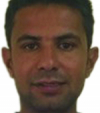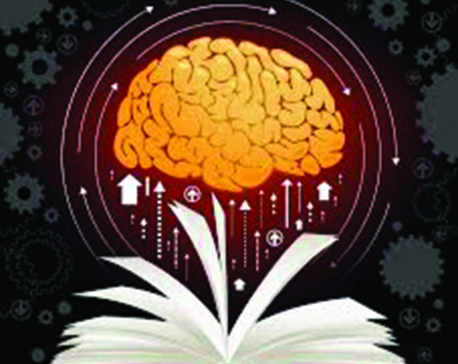
OR


Pradip Adhikari
The author worked as a VSO ICS team leader in Dhading after working as a volunteer teacher in a public school of Modi Rural Municipality, Parbatnews@myrepublica.com
More from Author
Students need to be trained to challenge conventional wisdom and to create new ideas. These skills can be garnered if students are allowed free thought and taught questioning skills
“What is the capital of Gandaki Province?” I asked the students in class eight of a school in the same province where I was a volunteer teacher. “Pokhara,” they replied in unison. “Which city other than Pokhara would make a good capital of our province?” I asked again. The class mumbled but when I insisted for answer, the class went into utter silence. “Anyone wants to give a try?”
“Will this question appear in our next exam, sir?” A student responded following the class’ inability to answer the question. The students were habituated with ideally listening to the teacher believing s/he says is only to be learned. Therefore, they were hesitant to speak when I asked the open-ended questions, gave the opportunity to ask questions, and probed to debate my assertions.
Purpose of education
Greek philosopher Socrates says the purpose of education is to examine one’s life and to learn to question the authority. Socrates would be disappointed with the classroom setting of Nepal as it neither prepares students to question the authority nor brings about critical skill sets. An examined life would be the one in which one questions the traditional dogmas or challenges conventional wisdom. We cannot expect the students to fight against the social injustice or discriminations of all forms if compliance with the authority is the norm. Students need to be trained to challenge conventional wisdom and to create new ideas to fulfill Socrates’ claim. These skills can only be garnered if the students are allowed free thought and taught the questioning skills.
While Socrates’ claim still holds true, Michio Kaku in his book Physics of the Future claims that the recent biggest boon of the education has been the creation of scientists and innovators who have led the world’s transformative development in recent human history. The Oxford Encyclopedia of Economic History cites studies that show that 90 percent of income growth in England and the United States after 1780 comes from technological innovation through science and technology. To that end, a country needs to have a workforce with a higher level of creativity, imagination, and innovation to reach a higher level of science and technology. Since our teaching pedagogy does not nurture these skills, Kaku would be skeptical about our ability to produce top class scientists and innovators who can dramatically transform the economic landscape of the country.
Our students lack abstract reasoning, argumentation, and questioning skills because of two basic reasons. First, our learning outcomes are measured by a student’s ability to memorize the dates, names, formulas or the parts of the text without necessarily needing to understand the context or their significance. This method of assessment fosters rote-learning and subdues the questioning, reasoning or debating skills among the students. Similarly, our cultural liking of obedience and respect is another hindrance to accumulating those skills. An attribute such as discipline, meaning compliance with the teachers, is pushed for and instilled upon the students, downplaying the questioning skill or open discourse in the class.
Since education is for the sake of students, it should be that they should be given the opportunity to have input most of the time. Socrates famously said that the role of a teacher is akin to that of a midwife, bringing out what is already in the student. As per Socrates’ module or what is currently known as learner-centered teaching methodology, students take an active role in a class and the teacher serves as a facilitator. They do so by engaging in discussion with the tutor and each other, by working in a group, by learning without constant monitoring and by evaluating their own work. By encouraging questioning skills, free thought, imagination, and creativity, this approach fosters transferable skills such as problem-solving, critical thinking and reflective thinking.
Creating values
It is established that learner-centered methodology is ideally an approach our schools should follow starting from very early classes. The biggest challenge we now face is to make sure that those learners, who are to become future leaders, scientists and innovators, pursue higher education, see value in education, and stay or return to Nepal. Most of my students were unsure if education would lead them toward a satisfying job in Nepal. “My brother completed a master’s degree in management but he still has not got a job in his field. He is taking Korean language classes to go to Korea on a working visa. I do not see higher education worth my time or money, which my parents do not have,” says Roshan who is looking to join Indian Army after having completed the 12th grade.
The urban private school educated students have a different narrative. Milan recently completed his 12th grade in science from a top private school in Kathmandu. “I do not see the opportunities to optimize my potential in Nepal. The universities here lack research opportunities,” he says. “Even if students study here for a Bachelor’s degree, many bright students leave the country for graduate and postgraduate degree. A few returns. I am not sure if I will return either,” says Milan who is now preparing for IELTS to go to Australia.
It is not the teaching methodology alone that matters in the schools for an educational system to serve its purpose. We also need to address factors such as demand for educated manpower, quality of higher education institutions and socio-economic status of parents. Learners like Roshan and Milan need to be assured that continuing into higher education in Nepal serves their purpose before hoping that learner-centered teaching practice serves the purpose of education claimed by Socrates and Kaku.
The author worked as a VSO ICS team leader in Dhading after working as a volunteer teacher in a public school of Modi Rural Municipality, Parbat
pradeip_adhikari@yahoo.com
You May Like This

Localizing knowledge production
Universities in developing countries must create new knowledge as their primary mission, especially for social progress and in the national... Read More...

What ails our education?
We cannot expect much from the teachers who passed their exams by reading the guide books and guess papers, or... Read More...

Abolish private education?
To truly counter arguments about abolishing it, private sector education must rethink its socioeconomic roles in the new national... Read More...







Just In
- NRB to provide collateral-free loans to foreign employment seekers
- NEB to publish Grade 12 results next week
- Body handover begins; Relatives remain dissatisfied with insurance, compensation amount
- NC defers its plan to join Koshi govt
- NRB to review microfinance loan interest rate
- 134 dead in floods and landslides since onset of monsoon this year
- Mahakali Irrigation Project sees only 22 percent physical progress in 18 years
- Singapore now holds world's most powerful passport; Nepal stays at 98th











Leave A Comment